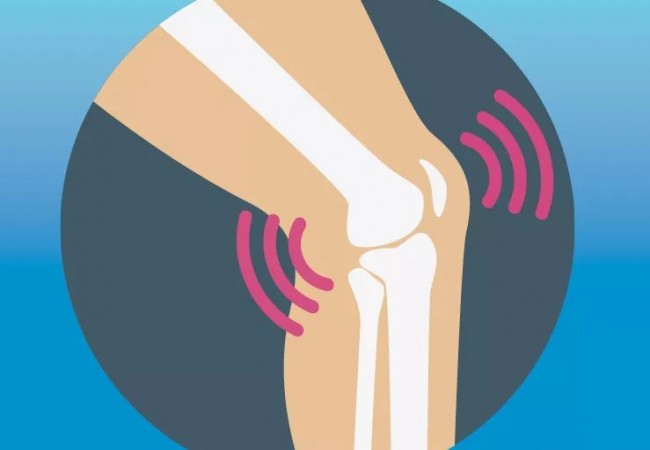
Joint cracking or popping sounds are a common occurrence that many people experience. These sounds can be caused by various factors, including the release of gas bubbles in the joints or the movement of tendons and ligaments. However, while occasional joint cracking might not be a cause for concern, persistent or painful cracking can be a sign of underlying health issues. Ignoring these symptoms can increase the risk of developing more serious conditions. Here’s a detailed look at what joint cracking might indicate and how to address it.
Understanding Joint Cracking
Joint cracking occurs when gas bubbles within the synovial fluid of the joint collapse or are released. This is generally harmless and often noticed when you stretch or move a joint in a certain way. Other times, cracking can result from the movement of tendons or ligaments over bones or changes in joint pressure.
Potential Risks Associated with Persistent Joint Cracking
Arthritis: Frequent and painful joint cracking may be a sign of arthritis, a condition characterized by inflammation of the joints. Osteoarthritis and rheumatoid arthritis are common types that can lead to joint damage, pain, and decreased mobility.
Joint Instability: Persistent cracking can indicate joint instability or misalignment. This might be due to weak muscles or ligaments that fail to provide adequate support to the joint, increasing the risk of injury.
Cartilage Damage: Cracking sounds accompanied by pain may suggest cartilage damage. Cartilage acts as a cushion between bones, and damage to it can lead to pain, swelling, and reduced joint function.
Bursitis: The presence of fluid-filled sacs called bursae helps reduce friction in joints. Inflammation of these bursae, known as bursitis, can cause joint pain and cracking sounds.
Tendon Issues: Tendons can sometimes snap over bones or other structures, creating a cracking sound. Tendonitis, or inflammation of the tendons, can result in pain and discomfort along with cracking sounds.
Steps to Take if You Notice Persistent Joint Cracking
Consult a Healthcare Professional: If you experience persistent joint cracking accompanied by pain, swelling, or stiffness, it is essential to seek medical advice. A healthcare professional can diagnose the underlying cause and recommend appropriate treatment.
Maintain a Healthy Weight: Excess weight can place additional stress on your joints, exacerbating symptoms. Maintaining a healthy weight through balanced diet and exercise can reduce the risk of joint issues.
Engage in Regular Exercise: Regular physical activity helps strengthen the muscles surrounding the joints and improves flexibility. Low-impact exercises such as swimming, cycling, or walking can be beneficial.
Practice Good Posture: Proper posture reduces strain on your joints and helps prevent misalignment. Be mindful of your posture when sitting, standing, or lifting objects.
Stay Hydrated: Adequate hydration is essential for maintaining healthy cartilage and joint function. Drink plenty of water to keep your joints lubricated and functioning optimally.
Consider Physical Therapy: A physical therapist can provide exercises and techniques to improve joint stability and strength. Physical therapy may also help address any imbalances or issues contributing to joint cracking.
Use Supportive Devices: In some cases, wearing braces or supports can help stabilize the joints and reduce the risk of injury.
Monitor Your Joint Health: Keep track of any changes in your joint health and report them to your healthcare provider. Early intervention can prevent more serious complications.
While occasional joint cracking might not be a cause for concern, persistent or painful cracking should not be ignored. It could signal underlying issues such as arthritis, joint instability, or cartilage damage, which may lead to more serious health problems if left untreated. By taking proactive steps such as consulting a healthcare professional, maintaining a healthy weight, engaging in regular exercise, and staying hydrated, you can manage and potentially reduce the risk associated with joint cracking. Always pay attention to your body’s signals and seek medical advice if you notice any concerning symptoms.
The Best Time to Drink Milk: Unlocking its Nutritional Benefits
Prioritize Your Wellbeing 5 Easy Self Care Tips for a Healthier and Happier Life
The Sweet Spot: Timing Your Sugar Intake for a Healthier You